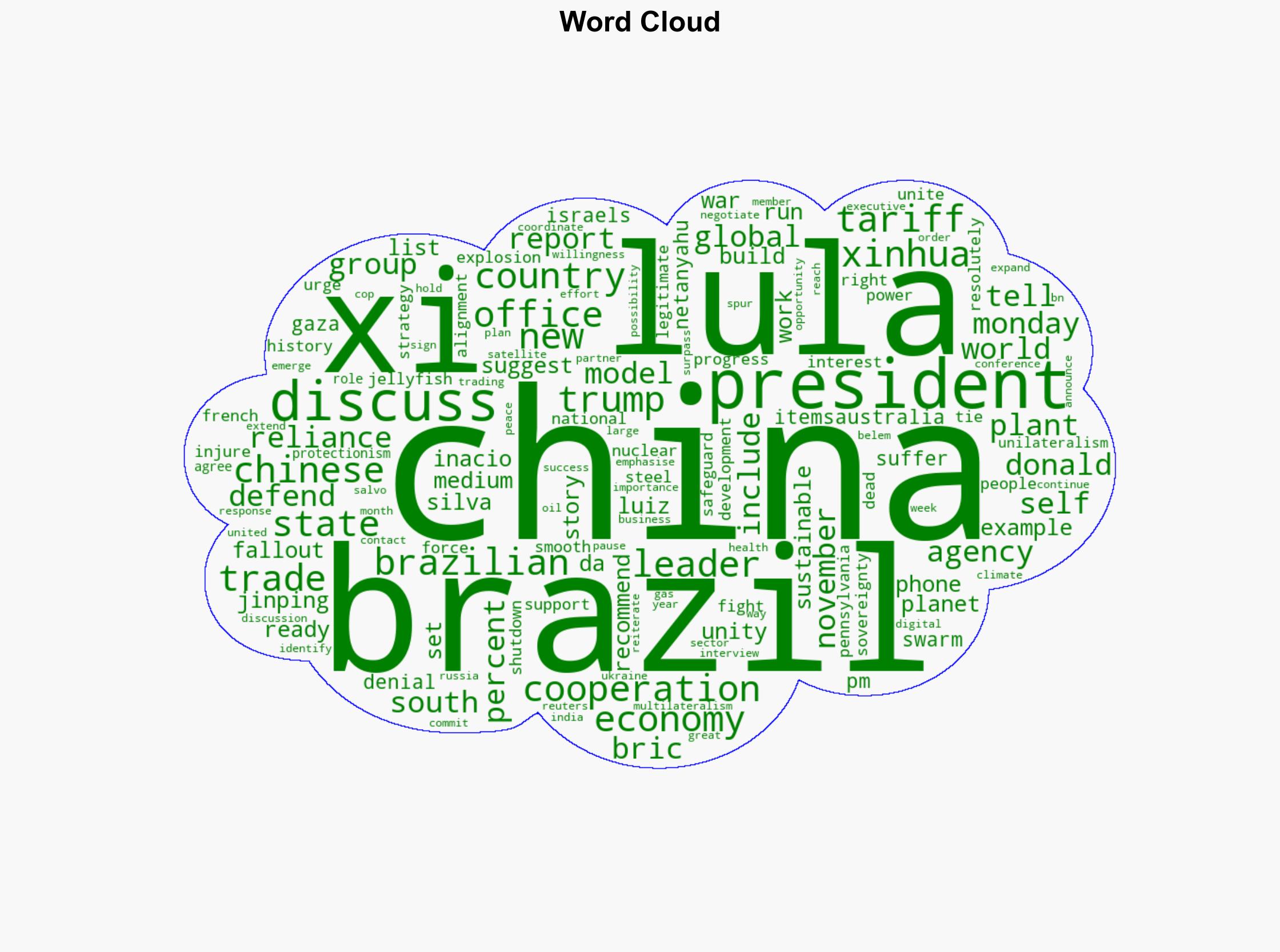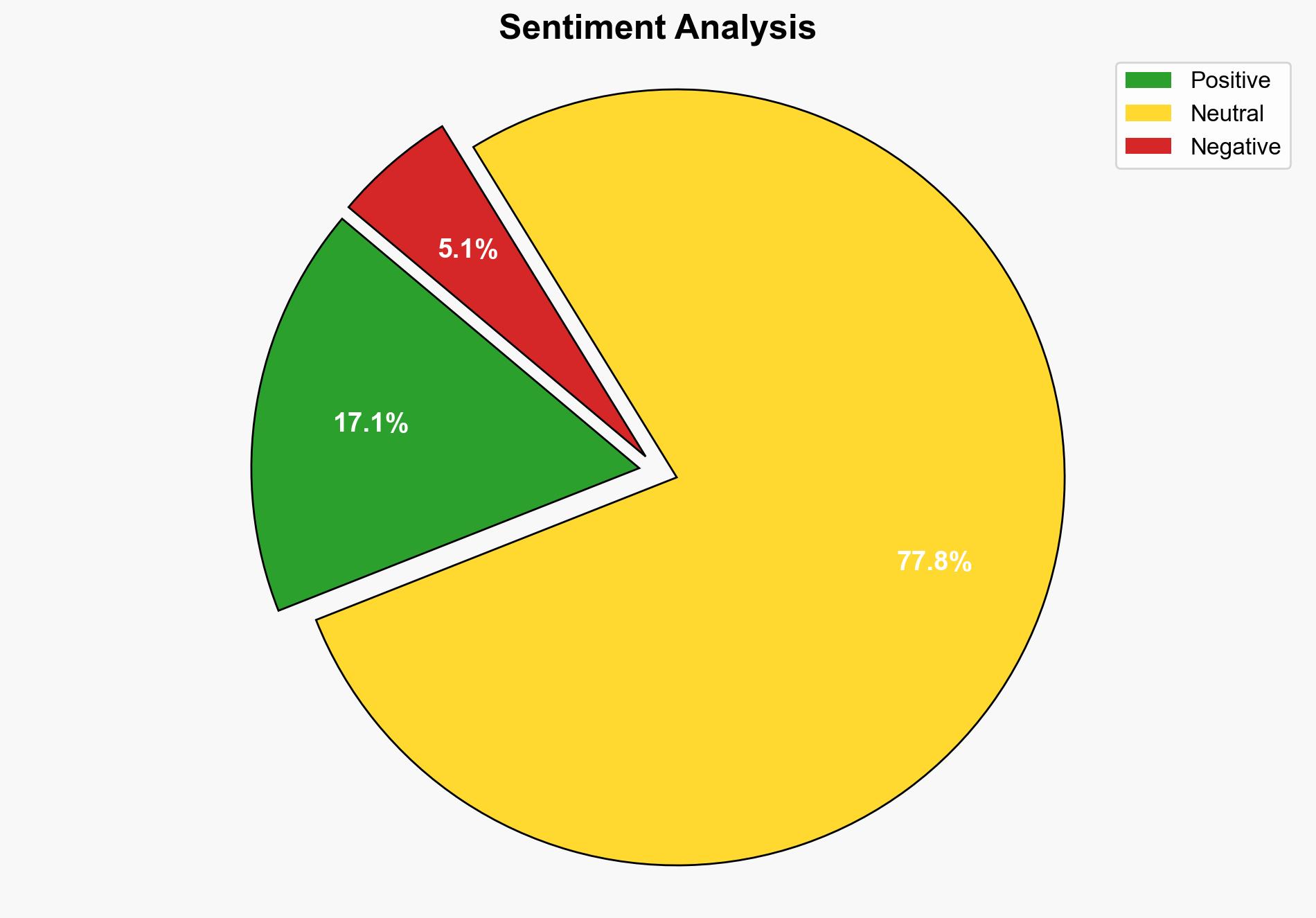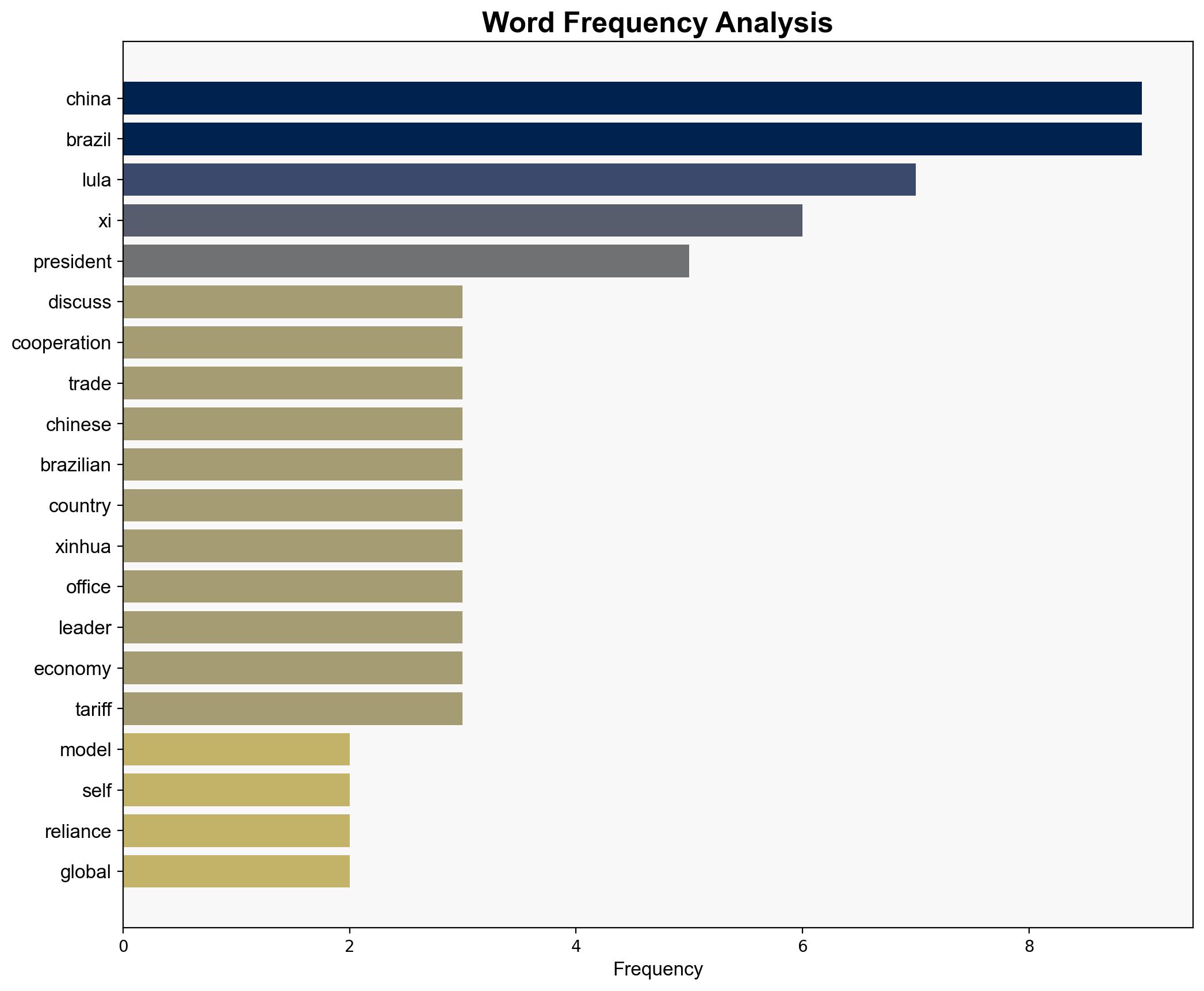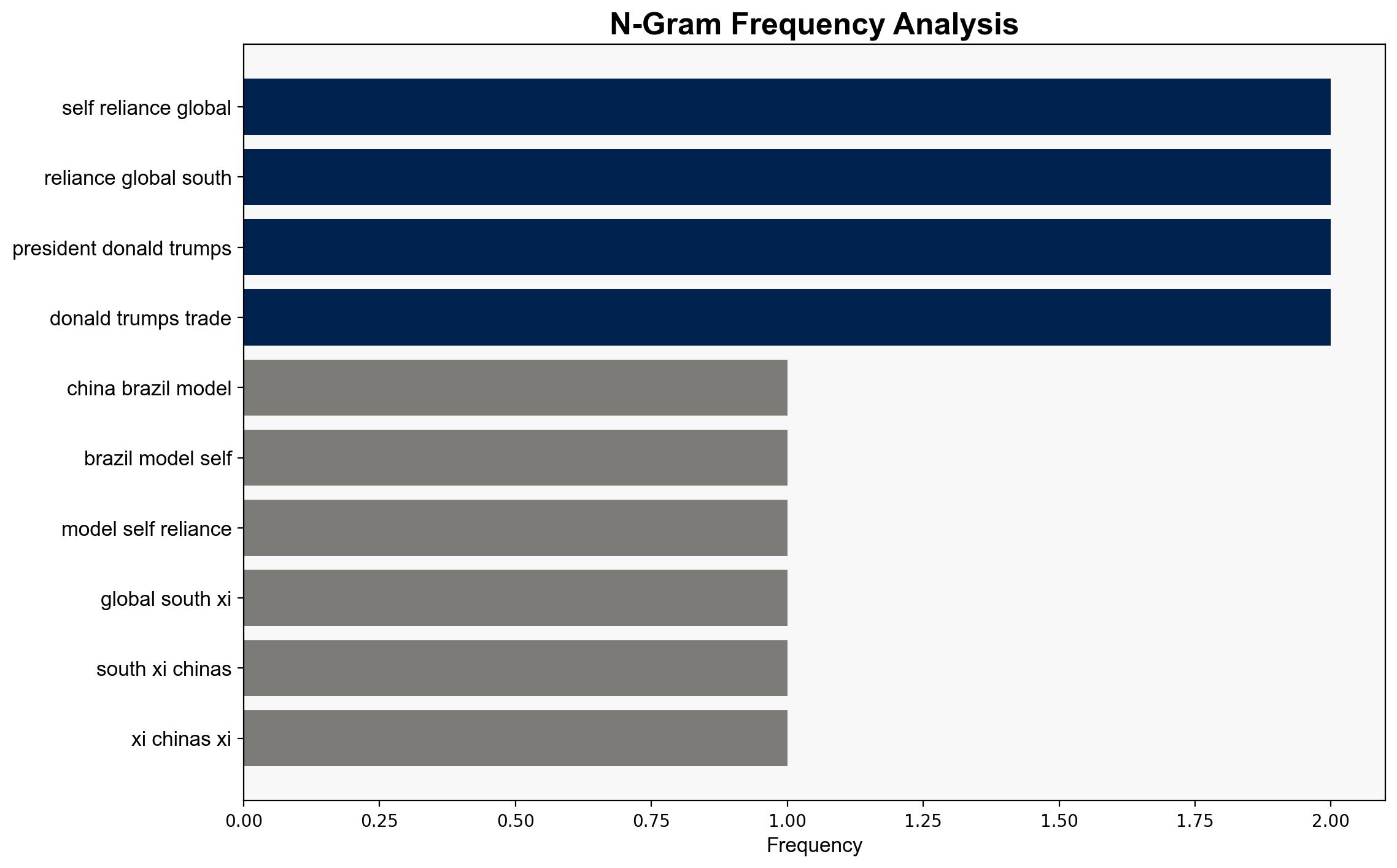China Brazil can be models of self-reliance for Global South Xi says – Al Jazeera English
Published on: 2025-08-12
Intelligence Report: China Brazil can be models of self-reliance for Global South Xi says – Al Jazeera English
1. BLUF (Bottom Line Up Front)
The most supported hypothesis is that China and Brazil are positioning themselves as leaders of a new economic bloc within the Global South, emphasizing self-reliance and multilateralism as a counterbalance to Western economic policies. Confidence level: Moderate. Recommended action: Monitor developments in China-Brazil cooperation and assess potential impacts on global trade dynamics, particularly in relation to U.S. economic strategies.
2. Competing Hypotheses
1. **Hypothesis A**: China and Brazil are genuinely seeking to establish a model of self-reliance for the Global South, aiming to reduce dependency on Western economies and foster regional cooperation.
2. **Hypothesis B**: The rhetoric of self-reliance is primarily a strategic maneuver by China to expand its influence in Latin America, using Brazil as a key partner to challenge U.S. dominance in the region.
Using ACH 2.0, Hypothesis A is better supported by the emphasis on multilateralism and sustainable development, as reported by state media. Hypothesis B is less supported but plausible given China’s historical pattern of using economic partnerships to extend geopolitical influence.
3. Key Assumptions and Red Flags
– **Assumptions**: Both hypotheses assume that China and Brazil have aligned strategic interests and that their cooperation will be effective in influencing the Global South.
– **Red Flags**: The potential for China to overstate its commitment to multilateralism while pursuing unilateral gains. Lack of specific details on how self-reliance will be operationalized raises questions about the feasibility of these initiatives.
– **Blind Spots**: The impact of internal political dynamics in Brazil and China on their bilateral cooperation is not addressed.
4. Implications and Strategic Risks
– **Economic**: Strengthened China-Brazil ties could shift trade patterns, potentially isolating countries that remain aligned with Western economic policies.
– **Geopolitical**: Increased cooperation may lead to a realignment of alliances within the Global South, challenging U.S. influence.
– **Cyber**: Enhanced digital economy cooperation could lead to increased cybersecurity risks if not managed properly.
– **Psychological**: The narrative of self-reliance may inspire other Global South nations to seek similar partnerships, altering global economic power balances.
5. Recommendations and Outlook
- Monitor China-Brazil trade agreements and joint initiatives for signs of genuine economic integration versus strategic posturing.
- Engage with other Global South nations to understand their perspectives and potential shifts in alliances.
- Scenario Projections:
- Best: Successful establishment of a self-reliant economic bloc that enhances global stability.
- Worst: Increased geopolitical tensions and economic fragmentation.
- Most Likely: Gradual increase in regional cooperation with limited immediate impact on global trade dynamics.
6. Key Individuals and Entities
– Xi Jinping
– Luiz Inácio Lula da Silva
7. Thematic Tags
national security threats, geopolitical strategy, economic realignment, regional cooperation




